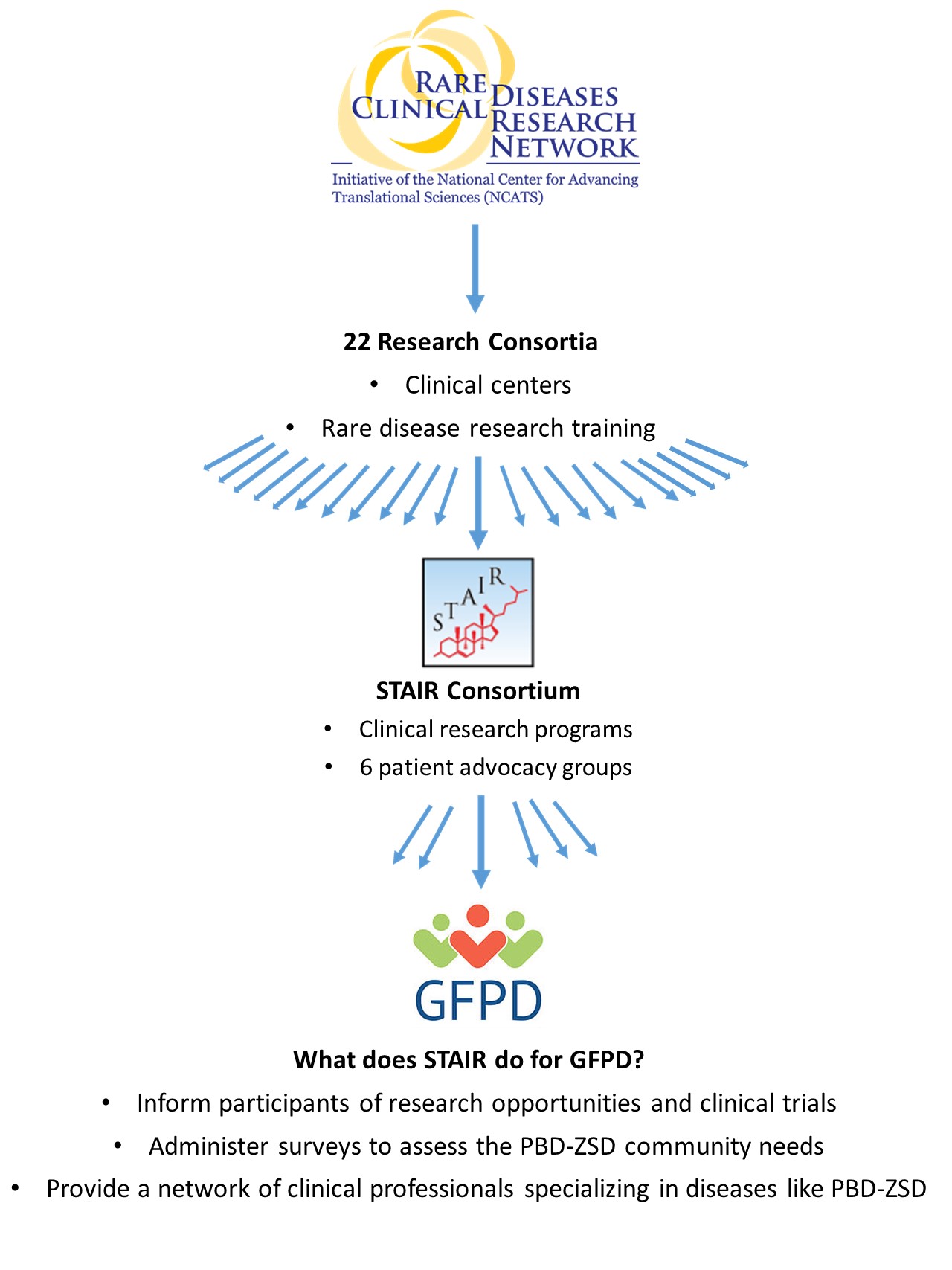Among medical professionals, rare diseases like Peroxisome Biogenesis Disorder-Zellweger Spectrum Disorder (PBD-ZSD) are challenging to recognize in patients and even more challenging to treat. Currently, there is no specific treatment for PBD-ZSD and most therapeutic options focus on management of individual symptoms. Even the treatment of individual symptoms is difficult to address by medical professionals when there are no established precedents to treat those symptoms as a part of the disease. These challenges are primarily due to a lack of scientific research on PBD-ZSD and rare diseases overall.
To address these barriers to treatment, the Rare Disease Act of 2002 established the Rare Disease Clinical Research Network (RDCRN). RDCRN is made up of 22 research consortia that connect patients and patient advocacy groups, medical and research centers, and the National Institutes of Health (NIH). The RDCRN seeks to “improve the availability of rare disease information, treatment, clinical studies, and general awareness for both patients, the medical community.” The Sterol and Isoprenoid Research (STAIR) Consortium is one of the research consortia in RDCRN; the overarching aims of STAIR are to study diseases of sterol metabolism (like PBD-ZSD), facilitate clinical research, encourage training and education to improve understanding, diagnostics, and treatment of these diseases. The GFPD is one of the 6 patient advocacy groups included in this consortium.
Why is involvement in STAIR/RDCRN beneficial to the GFPD? Close communication and collaboration between researchers, clinicians and patient advocacy groups are crucial for effective rare disease research. STAIR and the RDCRN are resources that promote this communication as well as direct communication between patient advocacy groups and NIH. Already there are at least 4 ongoing clinical trials as a result of the STAIR Consortium and its association with patient advocacy groups, and these numbers are continuing to grow. Dr. Mousumi Bose, Medical and Research Liaison for the Global Foundation for Peroxisomal Disorders (GFPD), recently attended the first STAIR Patient Advocacy Group Meeting in Omaha, NE, and got to interact with other rare disease groups as well as with Dr. Tracy King, the NIH Project Scientist for STAIR. STAIR and the RDCRN are committed to directly involving patients in not only the recruitment of these studies, but also in providing input to help shape research studies based on their experience. For more information about STAIR/RDCRN, please visit https://www.rarediseasesnetwork.org/cms/stair.

For parents of children affected by PBD-ZSD, the STAIR Contact Registry is a very useful resource. By enrolling in the STAIR Contact Registry, patient caregivers can choose to securely share information and questions directly with STAIR study doctors, research staff and other patient advocacy groups. Caregivers can also use the registry to learn about and participate in new and ongoing research studies, as well as get information about what is being learned from these studies. In addition to her role as Medical and Research Liaison for the GFPD, Dr. Mousumi Bose, has recently joined STAIR as a Research Trainee and will be undertaking a research project studying the quality of life of both patients and caregivers affected by PBD-ZSD. As the mother of a child with PBD-ZSD herself, Dr. Bose is uniquely positioned to understand the significant impacts rare diseases can have on the quality of life of both the patient and the parent caregiver. This is a study that specifically aims to understand the PBD-ZSD patient/caregiver experience, and will be an important step in raising awareness for the urgent need for better PBD-ZSD therapies.
If you are the parent of a child with PBD-ZSD, your involvement matters.
Enroll in the STAIR Contact Registry at: https://contactregistry.rarediseasesnetwork.org/Registration/Registration/RegStart/3589
and take part in this important first step towards in increased awareness and better treatment options.
